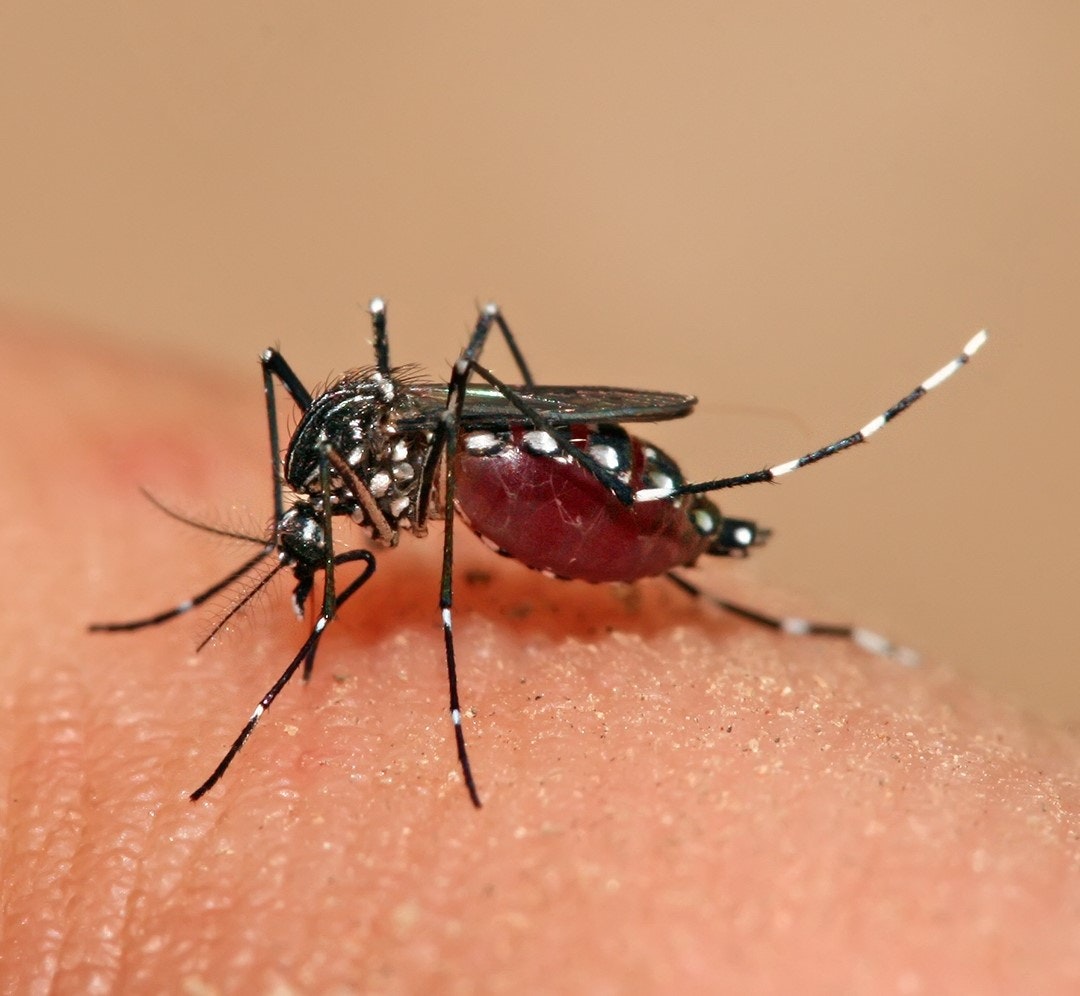Spring 2025 Newsletter
Quarterly Newsletter and Updates
Spring 2025

Alameda County Mosquito Abatement District finds California's first West Nile virus positive bird of the year, again.
Similar to last year, ACMAD found the first West Nile virus positive bird of the year in California. The dead bird was collected from Castro Valley near the Castro Valley Community Park, tested at the District laboratory on March 18, 2025 and confirmed on March 20th, 2025. The district provides robust year-around monitoring and testing for West Nile virus, no matter the season.
"With spring here, we’ll start seeing more mosquitoes across the state," says ACMAD Lab Director Eric Haas-Stapleton, PhD. "The rain and sunshine we’ve had over the last four months create ideal conditions for mosquitoes to grow in standing water. One of the first signs that West Nile virus is spreading in an area is the presence of dead birds, and we appreciate the public’s help in reporting them.”
West Nile virus is a virus that is endemic, meaning regularly occurring within an area or community, throughout the United States. Birds inadvertently spread the disease between regions if they receive the virus from an infected mosquito and fly for days while slowly getting sick from the virus. When there is a lot of virus in their blood and other mosquitoes bite them, those mosquitoes receive West Nile virus and the cycle continues.
If you see a dead bird, no matter where, please contact the California Dead Bird Hotline either by phone or online at California WNV Report Line. The best way to reduce the risk of West Nile virus is to prevent mosquitoes from developing in the first place. Residents can help by draining, treating, or covering any containers that hold water—or by reaching out to our district if there is standing water.
In response to the West Nile virus detection, the district reached out to local agencies such as Castro Valley Unified School District and Hayward Area Recreation District to amplify mosquito prevention messaging to residents. ACMAD also increased mosquito monitoring and larval control efforts throughout the area where the West Nile virus positive bird was discovered. While Alameda County still cycles between rain and shine, our mosquitoes are starting to increase in their numbers. The district encourages everyone to stay vigilant on eliminating standing water or connecting with our team if anyone notices mosquitoes. To learn more about West Nile virus, visit: Westnile.ca.gov
New and a returning trustee
.png?ixlib=rb-1.1.0&w=2000&h=2000&fit=max&or=0&s=6420e1601ad0482db8ab32500eb26702)
The District welcomes Pleasanton City Councilperson Jeff Nibert to the board. Councilperson Nibert replaces former Councilperson Valerie Arkin. The District also welcomes back Preston Jordan from Albany. Preston was previously on the board in 2020 and 2021, but stepped off the board when he was mayor of Albany in 2022. Mayor Robin Lopez represented the city of Albany from 2023-2024. We thank Valerie and Robin for their time and commitment to the district.
Conferences and presentations

Winter is conference season for mosquito abatement professionals, and this year we were pleased to have the Mosquito and Vector Control Association of California Annual Conference in Alameda County at the Oakland Marriott. Our staff had a number of posters and presentations, highlighting the wide range of our work, from providing professional development support for mosquito educators across the nation, to using solar power to charge our electric truck and drone. Our Information Technology Director Robert Ferdan and Laboratory Director Dr. Eric Haas-Stapleton started the conference with a plenary session “Generative AI in Mosquito control: Opportunities and Challenges” which lead to many conversations about the possibilities of using AI for innovating our work as mosquito professionals. Our Mechanical Specialist Mark Wieland brought colleagues to our office in Hayward to show our new mosquitofish rearing facility. Our staff also presented and networked with mosquito experts at the American Mosquito Control Association’s Annual Conference in Puerto Rico. Our staff particularly enjoyed meeting with Unidad de Control de los Vectores de Puerto Rico to learn how they combat invasive Aedes aegypti throughout the island of Puerto Rico.
Reminder- be on the lookout for Aedes aegypti

While we have not found additional Aedes aegypti since our detections in Pleasanton in October and November 2024, the District encourages residents and visitors to Alameda County to stay vigilant and report any daytime, aggressive mosquitoes to the office. Aedes aegypti mosquitoes are small, black with white stripes and can difficult to notice until you start scratching from their bite. Aedes aegypti not only makes going outside unpleasant, but these mosquitoes are the most common vectors of diseases such as dengue, Zika, Chikungunya and more. We need the public's help in finding and eradicating any invasive mosquito. If you experience bites during the daytime, contact us at 510-783-7744 or www.mosquitoes.org.

Mosquitoes can breed all year long in the Bay Area, so preventative activities such as removing standing water, adding mosquito fish to ponds, troughs, and neglected swimming pools will reduce our risk of West Nile virus. This is especially true when we have days of rain followed by days with lots of sunshine. Visit our backyard checklist to see common places where mosquitoes produce.
